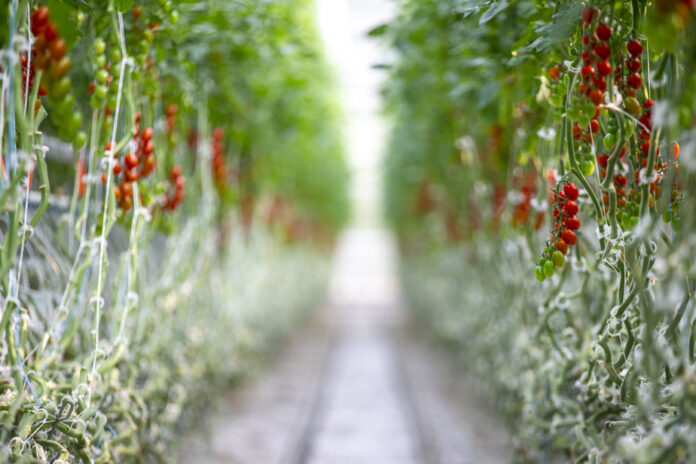After lettuce, cucumbers and peppers, Gen V adds tomatoes to its offer. By acquiring Serres Royales, the company becomes the largest greenhouse producer in Quebec.
The purchase allows Gen V to acquire 8.36 hectares of tomatoes from Serres Royales and, above all, to become the producer with the largest greenhouse area in the province. Already among the major players in the greenhouse production market, the company now monopolizes part of the tomato production. Tomatoes represent the lion’s share of greenhouse fruit and vegetable production.
Joined by telephone in the early evening, the director of marketing at Gen V, Valérie Terrault, confirmed the transaction. “We’re super happy. This acquisition is in line with our business strategy, which is to promote Quebec food autonomy. We think it goes through greenhouse crops, which are sustainable. »
Valérie Terrault believes that the integration of Serres Royales employees will “go well”, because the two family businesses “share similar values”, including “respect for the environment” and “human well-being”. .
Tomatoes produced by Les Serres Royales will retain the “Diva” label for the next year.
If you don’t recognize the name Gen V, it’s because the company, formerly known as Hydroserre Inc., has recently undergone a facelift. The producer unveiled his new identity last March.
Best known for its hydroponic lettuces offered in plastic containers bearing the “Mirabel” label, Gen V had already begun to consolidate the greenhouse industry by acquiring Serres Lefort. This transaction allowed him to add VÔG organic cucumbers and peppers to his arsenal of products.
In the short term, no other acquisition seems to be in the plans of Gen V. The company intends to focus on the integration of the Serres Royales, explains Valérie Terrault. She says, however, that Gen V could jump at the chance if a buying opportunity presents itself.
Serres Royales senior general manager Stephan Lemieux did not call back La Presse. Gen V did not disclose the amount of the transaction. The company believes that “the acquisition was made to the satisfaction of both parties”.
The greenhouse industry has been on a roll since the start of the COVID-19 pandemic in 2020. Prime Minister François Legault then announced that he wanted to increase food self-sufficiency to revive the economy. .
In the process, Quebec said it wanted to double the area of producing greenhouses in the province. According to data from the Ministry of Agriculture, Fisheries and Food (MAPAQ), Quebec currently has 189 hectares of greenhouses intended for cultivation. Its goal is to reach 240 hectares by 2025.
Last March, the Minister of Agriculture, André Lamontagne, confirmed to La Presse that the expansion was well underway. He was also pleasantly surprised that the new hectares added to the greenhouse production produced a greater volume of fruits and vegetables than the existing hectares.
In a press release sent Tuesday evening, Minister Lamontagne reiterated the importance of this industry. “Our major project on sustainable food self-sufficiency is an important tool for our government to increase the purchase of local products. The greenhouse growth strategy is a concrete example of effective investment leverage to have more fruit and vegetables produced here year-round, with less transport and better for the environment. »
In order to stimulate this growth, the government offers numerous subsidies to the greenhouse production industry. The support program for the development of greenhouse businesses allows producers to be reimbursed up to 60% of their expenses related to construction or modernization projects. Additional assistance of up to $50,000 is available to businesses that purchase new greenhouses.
Quebec greenhouses can also take advantage of a discount allowing them to save up to 40% on their electricity bill.
On June 19, an investment of more than 21 million was announced to allow the Savoura Group to increase its production.
Despite this marked growth, Québec’s production capacity is still much lower than that of Ontario. The neighboring province would have more than 1500 hectares of greenhouses intended for the production of fruits and vegetables.















